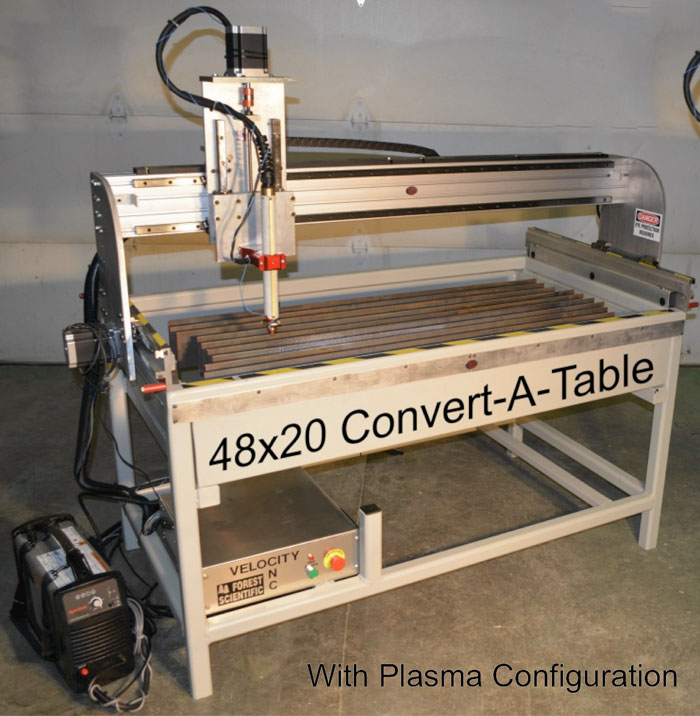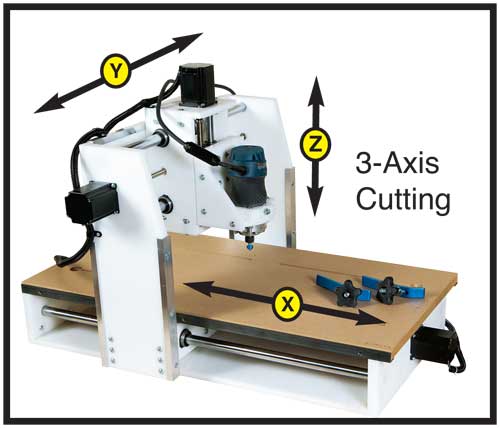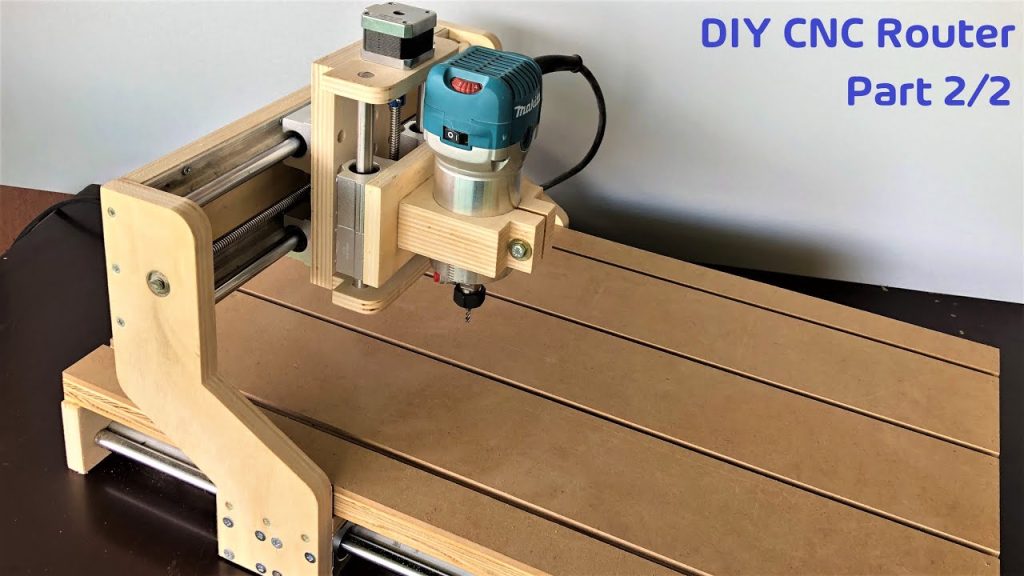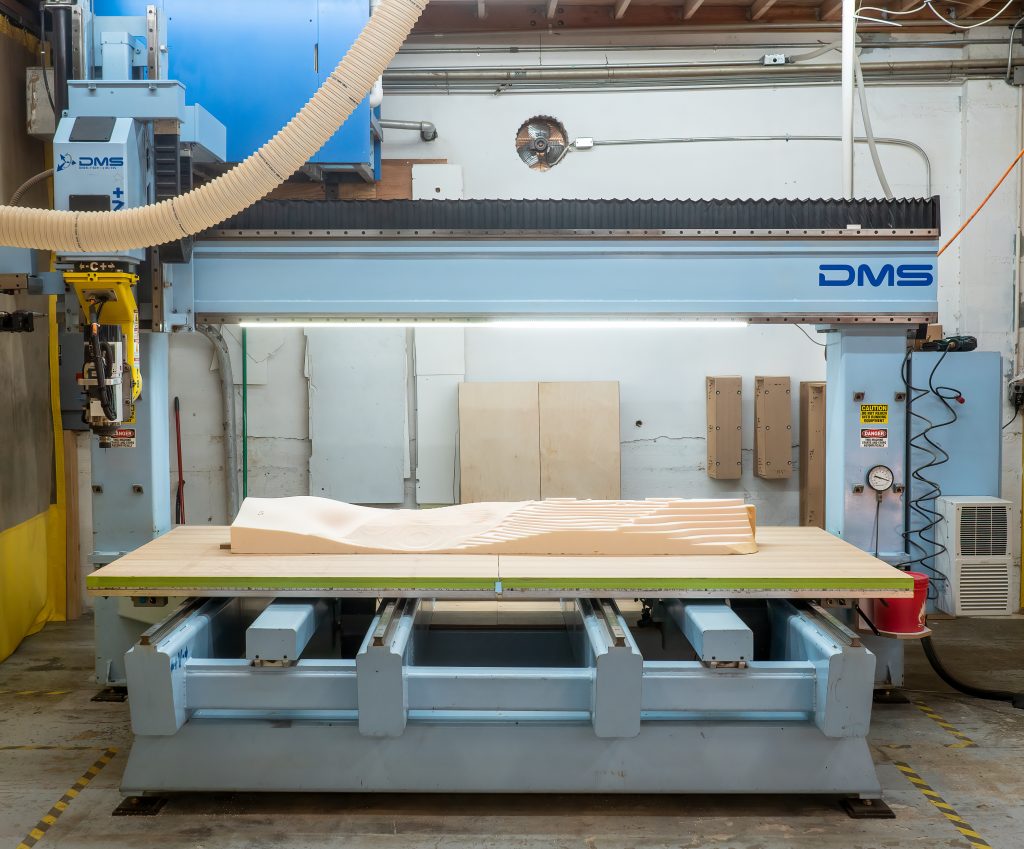Table of Contents
- Converting CNC Router into Plasma: Is it Possible?
- Frequently Asked Questions
- Can I Convert CNC Router Into Plasma?
- What are the benefits of converting a CNC router into a plasma cutter?
- What are the challenges of converting a CNC router into a plasma cutter?
- What are the costs associated with converting a CNC router into a plasma cutter?
- Is it better to buy a dedicated plasma cutter or convert a CNC router?
Are you tired of using your CNC router for the same old tasks? Are you curious about the possibility of converting it into a plasma cutter? Well, the answer is yes, you can convert your CNC router into a plasma cutter and open up a whole new world of possibilities.
By taking advantage of the existing infrastructure of your CNC router and adding a few essential components, you can easily transform it into a plasma cutter. This conversion will not only allow you to cut through a wide range of materials but also give you the precision and accuracy that comes with a CNC machine. So, let’s explore the process of converting a CNC router into a plasma cutter and take your fabrication game to the next level.
Converting a CNC router into a plasma cutter is possible with some modifications. However, it is not a simple process and requires technical expertise. You need to replace the spindle with a plasma cutter torch and add a high-frequency arc starter for the plasma. Also, you need to upgrade the CNC software to support plasma cutting. It is recommended to consult with a professional before attempting to convert a CNC router into a plasma cutter.
Converting CNC Router into Plasma: Is it Possible?
Introduction
CNC routers and plasma cutters are two popular tools used in the manufacturing industry. While CNC routers are used for cutting and shaping wood, plastic, and other soft materials, plasma cutters are used for cutting metal. Both machines are expensive, and many businesses that need both tools might not be able to afford them. This is where the idea of converting a CNC router into a plasma cutter comes in. But is it possible? Let’s find out.
When it comes to converting a CNC router into a plasma cutter, the answer is yes, it is possible. However, it requires some modifications and upgrades to the existing CNC router. In this article, we will explore the steps needed to convert a CNC router into a plasma cutter and the benefits of doing so.
Step 1: Remove the Router Spindle
The first step in converting a CNC router into a plasma cutter is to remove the router spindle. This is because the router spindle is designed to cut soft materials and is not suitable for cutting metal. Once the spindle is removed, you need to replace it with a plasma cutting torch.
Benefits:
- By removing the router spindle and replacing it with a plasma cutting torch, you can save money as you don’t have to buy a separate plasma cutter.
- It also saves space in your workshop as you don’t have to make room for two separate machines.
Step 2: Upgrade the Controller
The controller of a CNC router is designed to control the movements of the router spindle. However, when it comes to plasma cutting, the controller needs to be upgraded to handle the high voltage and amperage required for plasma cutting. You can either upgrade the existing controller or replace it with a new one that is designed for plasma cutting.
Benefits:
- Upgrading the controller can improve the accuracy and speed of the plasma cutter.
- It can also increase the lifespan of the machine as the upgraded controller can handle the high voltage and amperage required for plasma cutting.
Step 3: Add a Torch Height Controller
A torch height controller is a device that automatically adjusts the height of the plasma cutting torch during the cutting process. This is important as it ensures that the torch is always at the correct height from the material being cut. You can either buy a torch height controller or make one yourself.
Benefits:
- A torch height controller can improve the quality of the cuts as it ensures that the torch is always at the correct height from the material being cut.
- It can also save time and reduce wastage as it eliminates the need for manual adjustments during the cutting process.
Step 4: Install a Plasma Cutter Power Supply
A plasma cutter power supply is a device that provides the high voltage and amperage required for plasma cutting. You need to install a plasma cutter power supply that is compatible with the plasma cutting torch you are using.
Benefits:
- A plasma cutter power supply can provide the high voltage and amperage required for plasma cutting, ensuring that the machine operates efficiently.
- You can also control the power output, which allows you to customize the cutting speed and quality.
Step 5: Test the Machine
Once you have completed all the above steps, it’s time to test the machine to see if it works. Make sure that all the connections are secure and that the plasma cutter power supply is working correctly.
Benefits:
- Testing the machine ensures that it is safe to use and that it produces the desired results.
- If there are any issues, you can identify and fix them before using the machine for production.
Conclusion
Converting a CNC router into a plasma cutter is possible, but it requires some modifications and upgrades. By following the above steps, you can save money, space, and time by using one machine for both cutting and shaping soft materials and cutting metal. However, before attempting to convert a CNC router into a plasma cutter, make sure that you have the necessary skills and knowledge to do so.
Frequently Asked Questions
Can I Convert CNC Router Into Plasma?
Yes, it is possible to convert a CNC router into a plasma cutter. However, it is not a simple process and requires some technical knowledge and expertise. The basic idea is to remove the router spindle and replace it with a plasma torch. The CNC machine can then be programmed to cut metal using the plasma torch.
The conversion process involves various steps, including changing the machine’s hardware, installing the plasma cutter, and updating the software. It is recommended to consult with a professional technician or engineer before attempting the conversion to ensure that it is done correctly and safely.
What are the benefits of converting a CNC router into a plasma cutter?
Converting a CNC router into a plasma cutter has several benefits, including cost savings and increased versatility. Plasma cutters are generally less expensive than CNC routers, so conversion can save money. Additionally, plasma cutters can cut through thicker and harder materials than CNC routers, making them more versatile.
Another benefit is that plasma cutters produce less dust and debris than CNC routers, which can be important in certain work environments. The conversion also allows for the creation of more intricate and precise designs in metal, which can be useful in industries such as metalworking and fabrication.
What are the challenges of converting a CNC router into a plasma cutter?
There are several challenges to converting a CNC router into a plasma cutter. The first challenge is that the two machines are designed for different purposes, so the conversion requires significant modifications to the machine’s hardware and software.
Another challenge is that plasma cutters require specific gases and consumables, which can be costly and require regular maintenance. It is also important to ensure that proper safety measures are taken when using a plasma cutter, as they can be dangerous if not used correctly.
Overall, the conversion process requires careful planning and execution to ensure that the machine operates safely and effectively.
What are the costs associated with converting a CNC router into a plasma cutter?
The cost of converting a CNC router into a plasma cutter varies depending on the specific machine and the extent of the modifications required. Generally, the cost includes the plasma cutter itself, replacement parts, and labor costs for installation and programming.
It is important to consider not only the upfront costs but also the ongoing maintenance and consumable expenses associated with using a plasma cutter. However, despite the initial investment, the cost savings and increased versatility of the machine can make the conversion a worthwhile investment for certain industries.
Is it better to buy a dedicated plasma cutter or convert a CNC router?
The decision to buy a dedicated plasma cutter or convert a CNC router depends on the specific needs and budget of the user. Dedicated plasma cutters are designed specifically for cutting metal and often have more features and capabilities than a converted CNC router.
However, dedicated plasma cutters can also be more expensive than a converted CNC router. If cost is a primary concern, converting a CNC router may be a more practical option. Additionally, converting a CNC router allows for greater versatility in the types of materials that can be cut, which may be important for certain industries.
Ultimately, the decision should be based on a careful evaluation of the user’s needs, budget, and technical expertise.
In conclusion, the answer to “Can I convert CNC router into plasma?” is a bit complicated. While it is possible to convert a CNC router into a plasma cutter, it requires a significant amount of technical knowledge and skill. Additionally, the cost of the conversion may be quite high, depending on the specific components needed.
However, for those willing to put in the time and resources, converting a CNC router into a plasma cutter can be a great way to expand the capabilities of their workshop. With the ability to cut a wide range of materials, including metal and other conductive materials, a plasma cutter can be an invaluable tool for many DIYers and professionals alike.
Ultimately, the decision to convert a CNC router into a plasma cutter will depend on your specific needs and goals. If you are up for the challenge and have the necessary expertise, the conversion can be a rewarding and worthwhile endeavor.
Request a quote today!
[contact-form-7 id="1578" title="Contact form"]
Please compress the file into a ZIP or RAR file before uploading. Alternatively, send through your RFQ by email.
enquires@unitymanufacture.com





